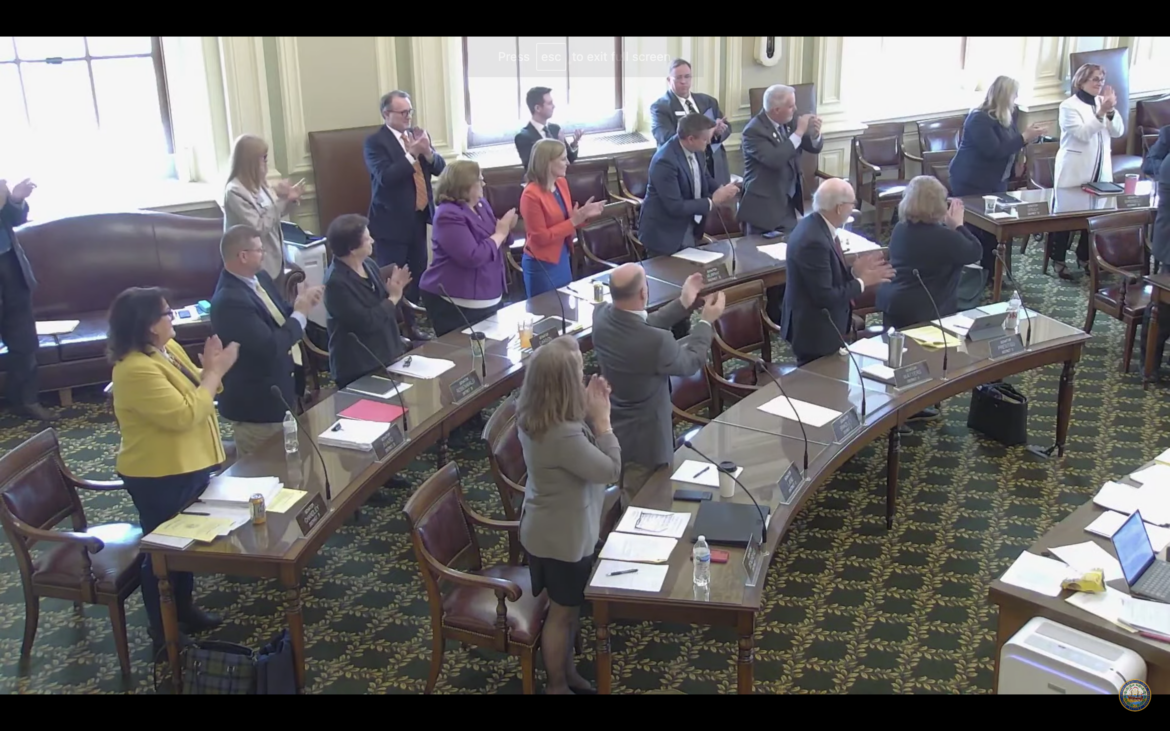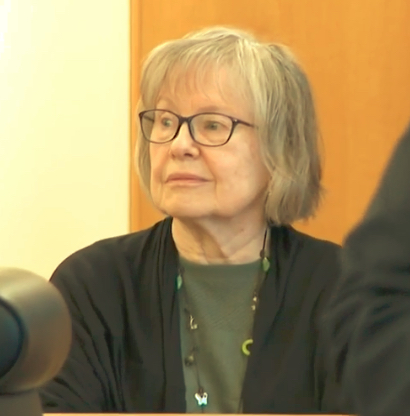By GARRY RAYNO, InDepthNH.org
CONCORD — The Senate unanimously approved supporting the state’s historic position in the presidential election process.
With bipartisan support, the Senate staked the state’s claim to the first-in-the-nation primary, a position it has held for over 100 years, although the Democratic National Committee voted to upend the current lineup and place South Carolina at the front of the line, while New Hampshire and Nevada would follow.
The Republican National Committee has approved the current line-up with Iowa’s caucuses first followed by New Hampshire’s first primary.
New Hampshire law requires the state’s primary to go before any similar contest and state Democrats and Secretary of State David Scanlan said the primary will be first despite the DNC’s decision last month.
Introducing her resolution Thursday, Sen. Regina Birdsell, R-Hampstead, said the state primary and retail politics makes those running better candidates and ultimately better presidents.
“New Hampshire voters expect candidates to earn their votes,” Birdsell said, noting a poor showing here can end a struggling campaign.
“In the past, we have always held bipartisan support as other states challenged our First in the Nation status. But today, the threat is not from other states, but from Washington,” Birdsell said. “The National Democratic Committee would like to dictate to New Hampshire when they will allow us to hold our primary. But our primary is set by law, not by a political committee.”
She noted New Hampshire has some of the highest participation rates in the country, knows how to run a primary and Granite Staters are willing to put in the hard work to make good decisions.
“Make no mistake, we will follow New Hampshire’s law, and our primary will remain first-in-the-nation,” she said.
Her words were echoed by Senate Minority Leader Donna Soucy, D-Manchester, who noted she still has the peanut necklace her parents gave her from the Jimmy Carter campaign in 1976.
“Political parties did not give New Hampshire the first-in-the-nation primary, New Hampshire did,” Soucy said. “More than 100 years ago (the people of New Hampshire) decided party bosses in side rooms should not decide who should be president, the people should decide.”
She said in New Hampshire voters look candidates in the eye, seek a firm handshake, and expect candidates to engage with voters.
“We look forward to continuing to work with our colleagues from across the aisle to protect our status of going first and ultimately protect the diverse array of candidates, from across the nation and the political spectrum, the New Hampshire primary creates and welcomes,” Soucy said.
Former Sen. James Splaine, D-Portsmouth, was the sponsor of a bill making New Hampshire’s primary first and supported an effort a couple of decades ago to make the law more emphatic that the state’s primary would be first before any similar contest.
The New Hampshire primary has had a reputation of allowing lesser known candidates to overtake perceived front-runners, like Minnesota Sen. Gene McCarthy’s showing against President Lyndon Johnson in 1968, Arizona Sen. John McCain’s resounding defeat of George W. Bush in 2000, and Pat Buchanan’s defeat of Senate Majority Leader Bob Dole in 1996.
The DNC has threatened sanctions against the state if it follows its law and holds the first primary.
Garry Rayno may be reached at garry.rayno@yahoo.com.




